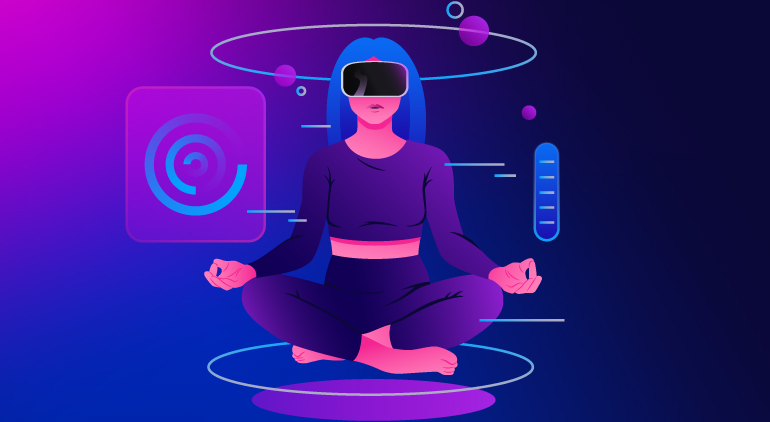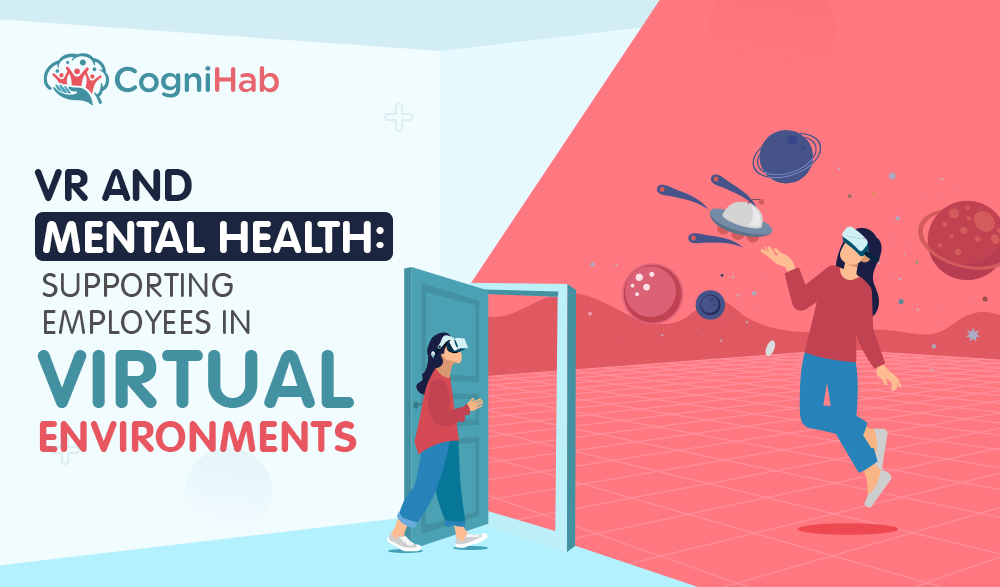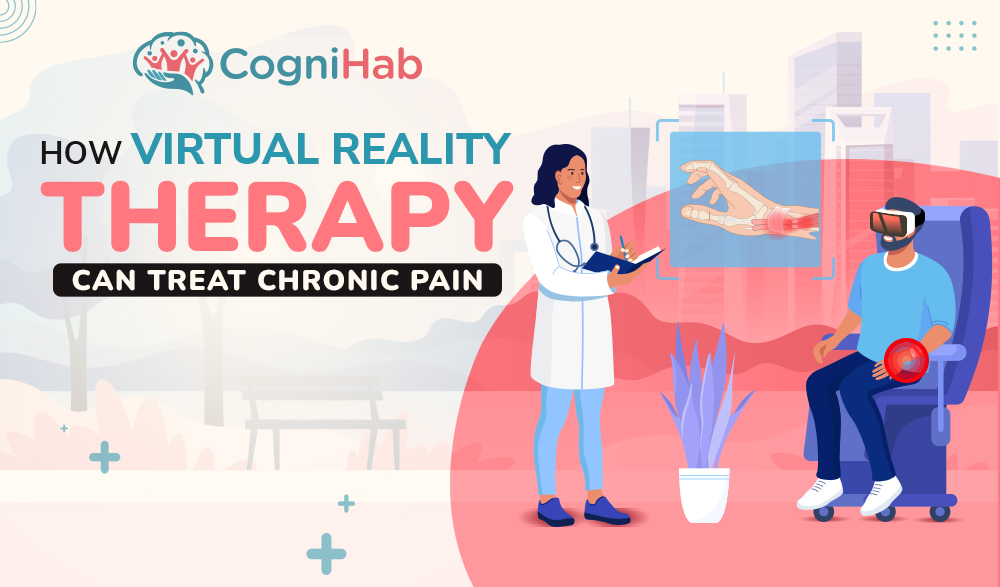Can Metaverse improve mental health?
Dependency on technology is always blamed for ruining the life of
humans.
Worldwide reports say that the average screen time of a human is almost
7 hours per day. Excessive screen time can lead to weight gain, insomnia,
chronic neck and back problems, depression, and anxiety.
In such a situation question arises of how Metaverse in the healthcare market is beneficial, and how it can help to deal with
mental health.
Don't ponder much; we have all the answers you may be looking for.
What is Metaverse?
Metaverse is a virtual space that is designed with rich graphics to
create a life-like experience. You can also call a parallel universe which is
not real but man-made, and you have all the possibilities similar to real life
— you can work, play, shop, and meet people.
By enticing a feeling, a Metaverse platform promises a more immersive
experience for social media users. It combines virtual reality healthcare solutions and augmented reality to
create a more realistic digital experience.
Another thing to discuss here is that large manufacturing companies use
the Metaverse as a large-scale industrial workspace. They can create a digital
twin of their machinery and test it in the Metaverse before going live. This
allows them to improve the design if necessary before production begins.
There are plenty of uses of Metaverse that it offers to different
industries, including healthcare.
Benefits
- Unlike the real world, there
is no limitation in Metaverse. It gives real-time simulation; a person can
create anything like building, driving, shooting, or enacting any story.
- It is the solution to
problems that come with remote working. Communication with different
levels of people becomes easy with Metaverse.
- Metaverse promises better
versions of social media platforms, which means there will be better
opportunities for businesses.
- Metaverse has the caliber to
shrink down the globe; medical facilities can be reached in remote places
that previously were not possible.
- This is a boon for the
travel sector as well, as it allows people to visit places virtually where
they can't go physically
Metaverse in Mental health
There is no denying that things have changed in the past year. Our
society has become more digital and lost touch with real people. It is truly
shocking that 20% of the world's population suffers from a mental illness.
Depression is the most common mental illness, affecting over 300 million people
worldwide. A significant number of teenagers and adults are facing the issue of
loneliness as well.
Another startling fact is that young children and teenagers are more
vulnerable to mental illness than adults. The main reason for this could be
social isolation.
Throughout Life-span, many issues have influenced people. Still, they
frequently choose to ignore them until they have a significant impact on their
lives.
Furthermore, people are looking for solutions and cures but are hesitant
to visit a mental clinic.
So the question arises how Metaverse can help them?
The pandemic witnessed many changes. One of them is switching to online
health support. Telemedicine provides a patient with better support at a lower
cost. In addition to that, patients can get access to the same anywhere.
The same goes with Metaverse!
Many Metaverse events, such as musical performances, are planned. These
shows have the potential to have the same impact on people as real-life events.
The same logic can be applied to mental health care.
VR has long been used to treat mental illnesses with success. Stress and
anxiety reduction can save your life during a mental breakdown. Patients may
benefit more from Metaverse technology, which combines the best aspects of AR
and VR.
How Metaverse works
In Metaverse, players can create their unique identities and personalize
their avatars. One can even choose their favorite superhero that can make them
feel good. Backing with Blockchain and decentralization, Metaverse is a secure
place where it is hard to reveal your real identity.
Therefore, if a person who faces a psychological problem visits an
actual therapist, they can talk to a Metaverse Mental Clinic.
Metaverse is interactive, provides a setting for online therapy, makes
treatment more accessible to those with disabilities, and creates a realistic
experience. People suffering from phobias, stress, addiction, and a variety of
other mental health issues can benefit from using therapeutic formats in the
Metaverse.
People with disabilities can enjoy themselves while having a realistic
experience thanks to interactive engagement. To use an example, consider the
2009 film Avatar, in which the protagonist was disabled. However, when he
stepped into his brother's avatar, he was utterly overwhelmed by the
experience.
Millions of people suffer from some form of disability, which leads to
mental illness. They can find new hope in the Metaverse.
Another critical point is that people in real life avoid discussing the
subject for fear of being judged or labeled as lunatic. However, the Metaverse
can create a new environment for assistance and improved communication without
revealing the true identity. This gives the patient the confidence to discuss
the issue.
VR has already proven its worth in the treatment of any addiction. It
also works well with exposure therapy to treat phobias, PTSD, anxiety, and
depression. Metaverse is an advanced version of VR in which they actually enter
and feel the new virtual world. However, you cannot touch it because it is not
real.
However, there is no doubt that therapies will improve significantly
with Metaverse. Many more mental health-related tools can be created in
Metaverse with the help of augmented reality to assist patients.
Conclusion
The Metaverse in the healthcare market is opening up a
whole new world of possibilities and will be a game-changer for the mental
health segment. However, this avatar movie is still in the pre-production
stages. But, as we all know, what was once an impossible thing has become an
essential part of our lives. Allow science to do its work and show us how
capable the Metaverse is of improving our society.
However, we will have to wait for innovations to learn more about how medical
practitioners can benefit from technology more effectively. Cognihab is working round a clock to help medical practitioners with the latest innovations. Visit the website to know more about
products.







